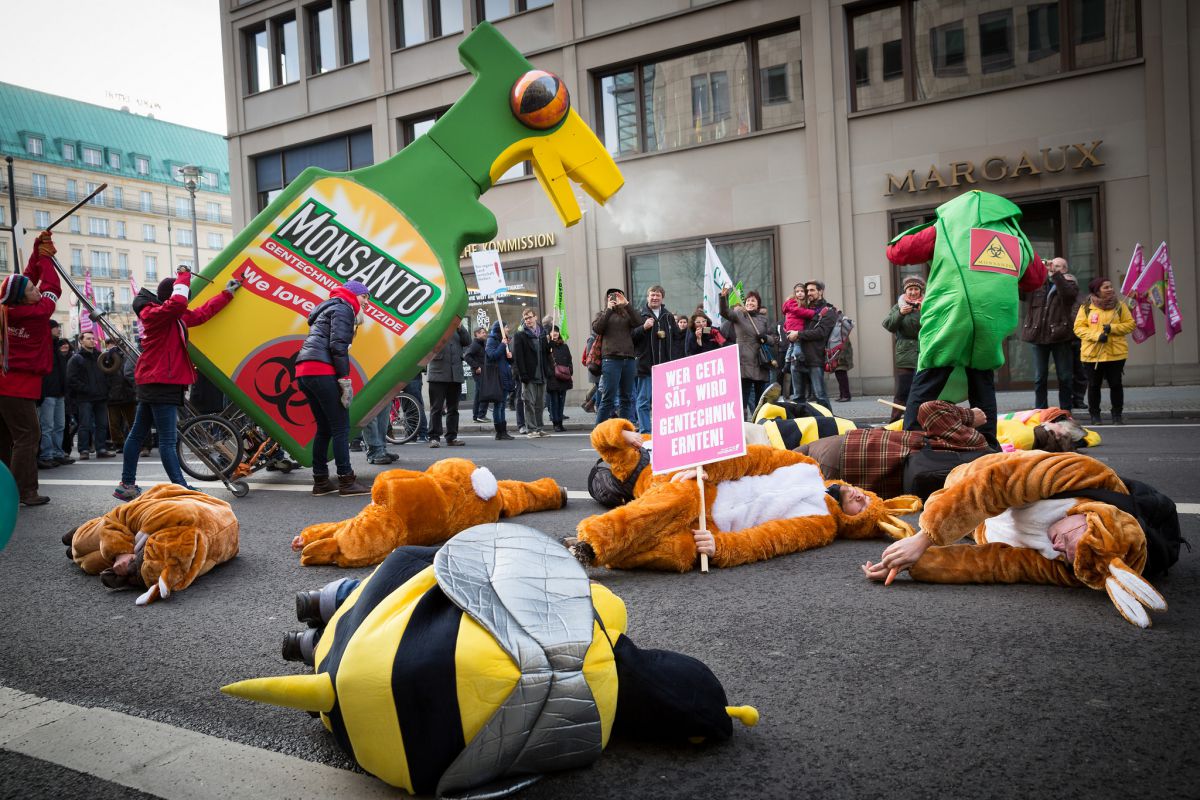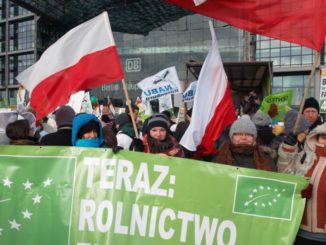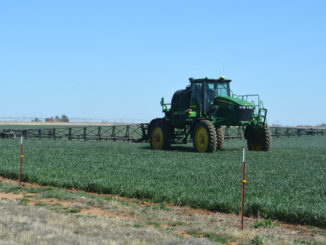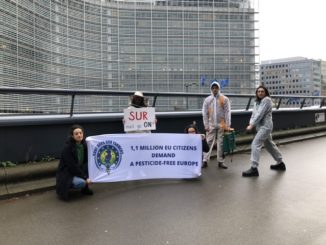
Guest opinion piece by Julia Sievers -of Agrarkoordination.
This year, the EU will decide whether glyphosate – the best-selling pesticide worldwide – remains approved after 2015 for another 10 years. As a basis for this decision, German authorities – on behalf of the EU – have re-examined the risks of this pesticide. The German authorities argue in their assessment report that glyphosate is not dangerous and recommend a re-authorization. But the official assessment is extremely controversial.
A fundamental problem is that the judgement of the authorities is based almost exclusively on studies of companies that produce their own glyphosate-based pesticides and therefore have a high self-interest in positive study results. In contrast to the assessment of the authorities and the industry studies, numerous studies of industry-independent scientists have give rise to more and more doubts about the safety of glyphosate and glyphosate-based pesticide. In addition to the adverse impacts on biodiversity, water, soil and some animal species, public attention has been paid to the health risks of the herbicide. There is scientific evidence, that Glyphosate causes cancer, affects fertility and causes damage to human genes and embryonic development. Read more on the scientific evidence here.
But the authorities declared independent scientific studies indicating toxic effects of glyphosate as not reliable and justify this with scientifically doubtful and contradictory arguments. A report by PAN Europe and Generations Future shows that the German authorities didn´t even take note of many scientific studies that have shown toxic effects of glyphosate.
According to the EU regulation 1107/2009 in authorization processes for pesticides all scientific studies have to be taken into account. However, it is still a general problem of pesticide risk assessment in the EU that it is based mainly on unpublished studies that have been conducted or instructed by pesticide producers. It has been shown that these industry studies and their interpretation mask negative effects of glyphosate through untrustworthy statistical methods and questionable arguments. Among others, toxic effects (with statistically significant differences between the experimental group and the control group) are dismissed with reference to so called historical control data (read more on this topic here).
Obviously there are great economic interests in favour of a re-authorization of glyphosate. In 2012 approximately 718 000 tons of glyphosate based herbicides have been sold worldwide. And the amount of application is continuously rising. The volume of sales of Monsanto for the glyphosate-product “Roundup” alone amounted to 2 billion US-Dollar in 2010.
The use of glyphosate is intrinsically tied to the cultivation of GMOs. But also in conventional agriculture, glyphosate has gained a very high significance and it cannot be easily substituted by other pesticides. Possible substitutes have at least a similar or even higher toxicity. One example is glufosinate – like glyphosate a broad-spectrum herbicide – produced by Bayer. Glufosinate is used as substitute for Glyphosate in places where glyphosate-resistant weeds have emerged. Although it has been confirmed by European authorities that Glufosinate can damage human reproduction and carries high risks for mammals and other organisms, it is still allowed on the European market until September 2017.
It is not a solution (for the protection of health and environment) to insist on the use of glyphosate with the argument that it is (supposedly) less harmful than other pesticides. There is enough evidence on the toxicity of glyphosate in order to terminate its use as a necessary precautionary measure for human and animal health. Recently a WHO expert group came to the conclusion (after reviewing scientific literature for one year) that glyphosate is probably carcinogenic.
But a ban of glyphosate alone is also not a solution if it is replaced by other harmful pesticides. The experiences with glyphosate show that the whole system of chemical weed management has to be challenged. The current, very expensive system of risk assessment, authorization and control of pesticides does not seem able to sufficiently protect our health and environment.
We need more support for eco-system based agricultural production methods – among others more research and more incentives and support for farmers for switching to (certified) organic agriculture. In addition to agricultural policy reforms we need a reform of the system of risk assessment, authorization and control for pesticides in the EU – including more transparency and industry-independent research and a review of the scientific requirements for toxicological risk assessment.
Support the campaign against Roundup & Co in agriculture!
The German NGO “Agrar Koordination” is looking for support from other European NGOs for a campaign against Roundup & Co in agriculture, which addresses the German agricultural minister and the European commission. You can support the campaign with your signature here
In addition you can support the campaign by putting a linked banner on your website. You can find the banner and a description how that works here
For more information contact the campaign coordinator: julia.sievers(at)agrarkoordination.de
More background information on the threats of glyphosate and the critique on the current system of pesticide risk assessment in Europe
Nancy Swanson: Glyphosate re-assessment in Europe is corrupt: Toxicology
Agrar Koordination & PAN Germany: Roundup & Co – Unterschätzte Gefahren (only in German)
All Arc2020 features on pesticides




